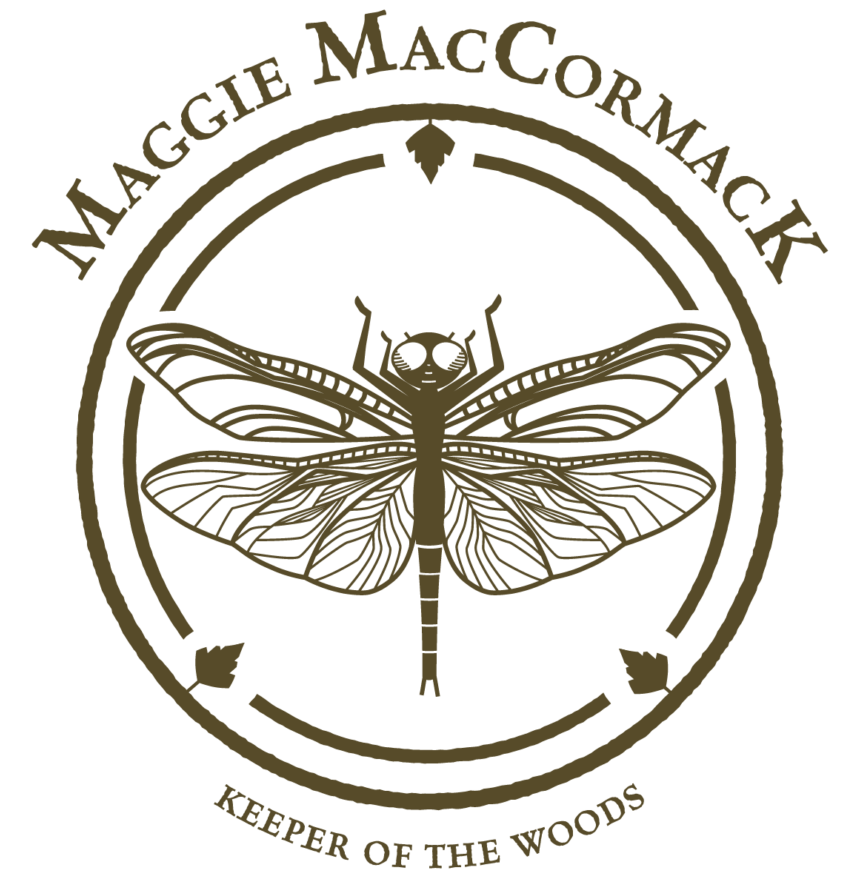MAGIC AWAITS IN
Maggie MacCormack and the Witches' Wheel
Soft Cover • Young Adult 12+$20.00
Read the First Seven Pages
Here
Ms. Abigail Finch, age 60 years,
foster mother, beloved in her community.
Suddenly, of a heart attack.
Maggie watched as her neighbourhood of narrow streets and painted brick row houses disappeared into the side-view mirror. As a veteran of foster-family hopscotch, the ginger-haired girl had lived her first twelve years in big houses with multiple bathrooms, and small houses with multiple rodents. She had known a kind hand and a cruel fist. Aware that on any given day of the week she could be picked up and delivered to any address entered into the appropriate case file, Maggie left her few belongings in cardboard boxes, and used her suitcase as a travelling dresser. Now, with all she owned heaved into the back of a camper van, twelve-year-old Maggie MacCormack, ward of the city, case number 7861, was again consigned to the charge of persons unknown.
But as far as Maggie’s life was concerned, the death of Ms. Finch had already changed everything.
Mister Jardine was Maggie’s eleventh social worker in as many years. He was a rugged man with unkempt black hair, brown eyes, a broad nose that curved slightly to the left, and a dimpled chin. He wore a green wool sweater, blue jeans and hiking boots.
His van smelled like cinnamon. Its radio picked up a single station that played out of one speaker and crackled out of the other. Its dashboard needed dusting and its floors were caked in dry mud and small green leaves. The wind whistled through a gap in the weather stripping on the passenger side window, and the seat under Maggie’s bottom was in desperate need of padding and repair.
Everything about Mister Jardine was unorthodox, unexpected, contrary to the many officious social workers whose case Maggie had been in the past. Mister Jardine didn’t constantly check his phone for texts, he wasn’t curt when asked a question; he treated Maggie like an actual person, not like a parcel out for delivery.
Maggie was charmed by the timbre of his Glaswegian brogue when he spoke, and that he listened intently when she spoke also charmed her. It was a strange feeling – to be immediately comfortable in the company of a complete stranger – for a girl who had learned in her short lifetime to be suspicious of most adults, many of whom cared more about closing a file or cashing a cheque, than about her well-being.
Under his breath, but loud enough for her to hear, Mister Jardine called drivers cheeky names when they tried to cut in front of him on the highway. Maggie liked that, and it made the time spent in gridlock more agreeable.
“This is worse than waiting in queue for the loo after a football match,” Mister Jardine said, inching his van forward, more than close enough to the car in front of him for Maggie to read a large green bumper sticker.
“Nurture. Nature. Respect Mother Earth,” she mumbled.
With his hands resting on the steering wheel, Mister Jardine casually pointed an index finger toward the sticker. “What do you think, Maggie?” he asked.
“What – the bumper sticker? Aye. Of course, I’ve always liked nature ‘n being around trees. But my foster parents have all lived in the city.”
“Yeah, it’s a lottery, isn’t it? You never know what you’re gonna get.”
“Foster care’s no lottery. A lottery implies you might win somethin’.”
“Aye,” said Mister Jardine flicking on his indicator as he moved into the left lane and off the highway. “It’s always the person who’s about to give up and not buy another lottery ticket who ends up winning.”
“Not in my world,” muttered Maggie.
At a traffic light, a murder of crows suddenly blackened the sky above his van. Jardine’s jaw tightened. Maggie noticed how firmly he gripped the steering wheel; she was worried he would run the red light. He was constantly looking from his rear view mirror to his side view mirror – he even looked up through his sunroof. Maggie found it strange that so burly a man could be one so skittish. Yet, when the crows swept down onto garbage cans, pecking through the waste, scavenging for brunch, he laughed, winking playfully at Maggie.
He’s crackers, she giggled to herself.
The traffic light turned green while Maggie was busy trying to read a naughty piece of graffiti scratched on a mailbox. She had all the while been clasping her sketchbook, tattered and dog-eared, quite tightly. One end was tucked under her knitted navy blue sweater; the other end stretched over her tartan kilt, stopping short of her bare knees.
“Do you want to be an artist?” he asked Maggie.
“I dunno. Maybe.”
“Did you paint the stars on your army boots yourself?”
“Aye,” said Maggie, looking down to admire her work.
“The silver was a nice touch.”
“Ta,” smiled Maggie, feeling quite chuffed.
“Can I see some of your sketchbook drawings later?”
No way! You can never show him – or anyone else! Maggie warned herself. But to Mister Jardine she said: “I dunno…it’s more of a diary…personal stuff…just for my eyes.”
Indeed, for now the secret of the sketchbook remained with Maggie.
Jardine stopped the van at a café for “a coffee and pee break.” It was a trendy, exposed brick rectangle of a joint, populated by laptop users who seemed to be at their leisure, grouped at long tables; lovers with lattes snuggled on sofas. He treated Maggie to a salted caramel milky iced coffee with double whipped cream and a slice of lemon pound cake. He kept his eyes on the front door, examining the tide of customers, taking note of everyone who came in or left the café. And when Maggie went to the washroom he stood guard at the door without her knowing.
Walking back to the van, Maggie took long draws on the chubby orange straw in her drink, pulling chunks of crushed ice and whipped cream into her mouth. Jardine held his coffee in his right hand, his car keys in his left, quickly scanning rooftops, parked cars and alleyways. He opened the passenger door for Maggie.
“Thank you, Mister Jar—”
“—Duncan,” he interrupted. “Call me Duncan. I’m not a fan of formality, Maggie. Besides, Mister Jardine’s what people called my father.”
Maggie giggled, climbed into the van, lifting her sketchbook from the seat before sitting down. Duncan opened his door and climbed into the driver’s seat, checking his mirrors before taking the lid off the paper cup and blowing on his coffee to cool it down.
“Can I ask you a question?” said Maggie curiously.
“Aye. Go ahead.”
“Why are your fingernails so dirty?”
Duncan’s eyes twinkled.
“I like to work the soil…grow things. It’s something my father passed on to me.”
Maggie offered no response, but sat impassively.
Duncan sighed, turned on the ignition, drove ahead.
Duncan Jardine could not have navigated the series of one-way streets and roundabouts more assuredly if he had designed them himself. Maggie’s eyes lit up. From the van’s windows she saw houses taller than in other neighbourhoods, lawns resembling immaculately manicured golf greens, and every walkway guarded by an army of fierce-faced, freshly carved jack-o-lanterns.
“You can turn into one of these driveways if you like. Any house will do.”
Duncan chuckled. “We’re about ten minutes away,” he said. “It’s a grand place I’m takin’ you to, Maggie. Big trees, a lovely garden, and the woman who runs the house is quite the character. You’ll be happy there, I promise.”
The van turned onto a wide cobblestone street, followed tram tracks snaking right, then left, before straightening out.
From her window Maggie saw a bank, a florist, a bike shop, a sushi restaurant, a green grocer, and a bus shelter where on the glass that faced the street was scrawled BuRN tHe wOOds; an old woman pulling her groceries in a buggy, a lanky man running for a streetcar, children jumping rope, and amber leaves tumbling down the sidewalk. A barefoot boy perched in a tree looked in her direction and waved.
They came to a fork in the road. Turning left then following the tram tracks down a steep hill would lead them to the old city. The heading they were on would take them over a small cobblestone bridge; it was over that bridge that Duncan drove.
Shadows crawled over the car and pockets of light hinted at the road to come as they entered a tunnel of overgrown trees with roots that twisted and turned like so many octopus tentacles.
Maggie stuck her head out the window. She looked up at the squash-coloured canopy, fascinated by the downpour of leaves it sent twirling gently toward the ground. She tried to catch one, but was jerked forward. Duncan had slammed on the brakes. Through the windshield Maggie saw a battle-scarred, sandy-brown Lab, nose to nose with the van’s rusty chrome bumper. The dog’s bark demanded that all visitors first check in with him.
“Harry,” yelled Duncan, hanging out the window. “You’re too old to be playing these games.”
A sharp whistle told Harry to stand down. Fiona, regal and relaxed in her late sixties, stepped off the front porch of her large wood and stone cottage. But Maggie, mesmerized by the singular charm of the cottage facade, barely noticed her. Dragon chimes chingled in front of an open window. The silhouette of a horse galloped above the thatched roof as its weathervane, following the direction of the wind, spun this way and that.
“It’s brilliant!” exclaimed Maggie as she stepped out of the van, sketchbook in hand.
Fiona opened Duncan’s door.
He smiled, got out, and embraced her.
“You all right?” asked Duncan.
“Best I can be,” replied Fiona. “The change was quicker than expected.”
“It came too early. It wasn’t fair.”
“Angus knew our ways. He had no choice.”
“None of us ever have,” said Duncan quietly.
“Get away you freak,” blurted out Maggie, tap dancing away from a crow that pecked at the painted stars on the toes of her army boots.
With a brisk snap of her walking stick Fiona turned a pebble into a missile that struck the intruder on the head. Without waiting for a second such prompting to send it on its way, the crow flew out of range to caw its disapproval from the treetops.
“Not bad for an old bitty, eh?”
“I could have taken him,” teased Maggie, noticing that Fiona’s sweater gave off the distinct aroma of cinnamon.
“C’mon, then, let’s have a look at you,” said Fiona, holding Maggie by the shoulders, examining her head to toe. “Hmmm. Green eyes. Freckles. Funky wardrobe. And an artist too, I see. I approve. You can stay.”
Maggie smiled nervously, unsure if Fiona was joking.
“It’s a short march to the kitchen. Let’s see what we can conjure up. Follow me.”
“I’ll get the bags,” said Duncan. As he opened the back door of the van twigs snapped in the distance. He looked to his right, where three men made out of leaves, branches and berries nodded to him. “Have you no shame—he’s not even in the ground yet,” growled Duncan. “Leave us alone.”

